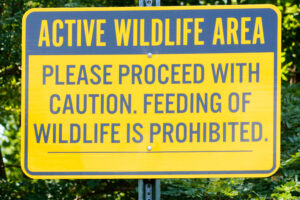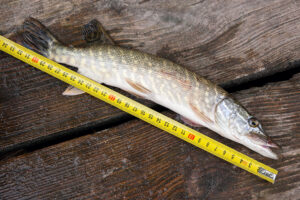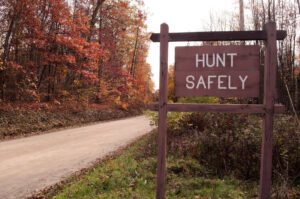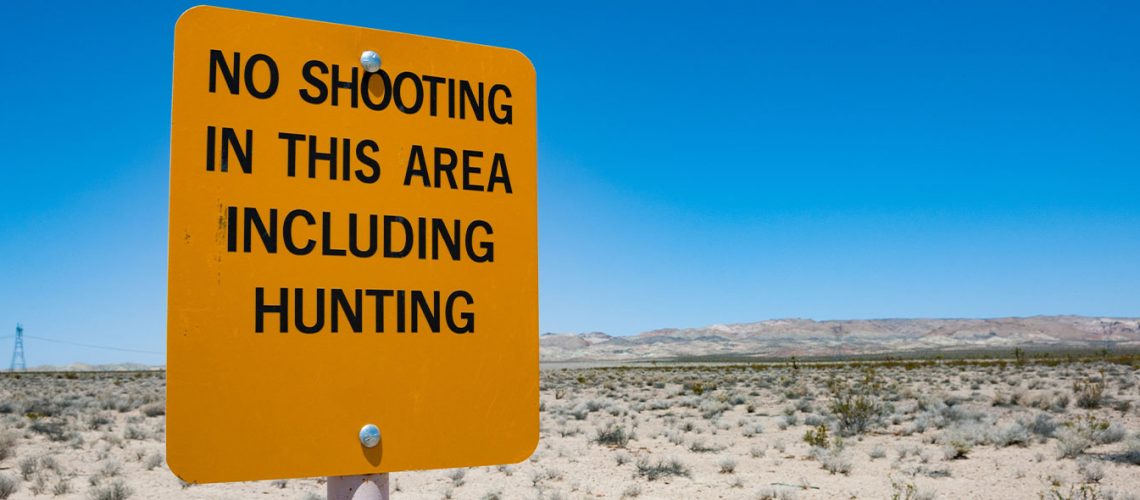Recently, one of our competitors announced with great fanfare that they were offering an “add-on” feature of hunter and fisherman protection, available at an additional charge.
We’d like to announce that we don’t do that. And here’s why.
We’re serious about self-defense. First of all, the attorney network we’ve assembled has been specifically created and managed to handle the complex and life-altering issue of firearms self-defense. We are not a law firm. We are not incentivized to take on different types of cases. We carefully select attorneys for our network (see our article “A Pre-Qualified Attorney Is Better Than Your Choice” for more on this) based on their experience in self-defense cases. We don’t handle other types of cases. Our entire service is dedicated to protecting individuals who defend themselves or others.
 The consequences of self-defense can extend far beyond the typical result of a hunting or fishing violation. The vast majority of which result in a fine, typically a small one. Nearly all hunting and fishing violations are misdemeanors. Those don’t cause you to lose your right to own a gun, despite claims to the contrary.
The consequences of self-defense can extend far beyond the typical result of a hunting or fishing violation. The vast majority of which result in a fine, typically a small one. Nearly all hunting and fishing violations are misdemeanors. Those don’t cause you to lose your right to own a gun, despite claims to the contrary.
Yes, they can cause your weapon to be seized as evidence, but that is quite a bit different from a felony conviction that prohibits you from ever purchasing another firearm.
A game violation might cause you to lose your hunting license, just like driving your car backwards down the wrong side of the road could cause you to lose your driver’s license. It is rarely your second amendment rights that are at stake.
We’re totally focused on protecting legal gun owners who’ve been involved in a self-defense incident.
 Our customers aren’t asking for hunting or fishing protection. Certainly, we could try and leverage our member relationships by offering something no one is asking for. It would be a great way to earn additional dollars.
Our customers aren’t asking for hunting or fishing protection. Certainly, we could try and leverage our member relationships by offering something no one is asking for. It would be a great way to earn additional dollars.
But we’d rather provide the very best service possible exactly where our customers need it. Not where they don’t.
Game regulations are printed, accessible, and often easy to learn. If you know and obey the law, it’s virtually impossible to violate hunting and fishing regulations. Every hunter receives a book of regulations, and there’s very little nuance to them. Some may be complex or confusing, but they are generally measurable and well-written. As opposed to a jury being asked to decide whether a gun or weapon-related incident was self-defense or manslaughter based on all the details of a particular incident.
Game and wildlife violations like hunting out of season or without a license are usually self-evident and rarely involve long, protracted legal actions or trials.
 Hunters and fishermen can always simply call their local game warden for a clear and definitive statement of the rules and regulations. They can ask that individual questions of clarification if they’re unsure. In most states, the fines for minor infractions are equally minor, promoting opportunities to learn from mistakes. The most severe fines are dedicated to those individuals going out of their way to deliberately circumvent game laws on a large or impactful scale. (Like invoking the Lacey Act, the only way it becomes a federal crime.
Hunters and fishermen can always simply call their local game warden for a clear and definitive statement of the rules and regulations. They can ask that individual questions of clarification if they’re unsure. In most states, the fines for minor infractions are equally minor, promoting opportunities to learn from mistakes. The most severe fines are dedicated to those individuals going out of their way to deliberately circumvent game laws on a large or impactful scale. (Like invoking the Lacey Act, the only way it becomes a federal crime.
Persons in a firearms self-defense incident don’t have the luxury of calling someone in advance and asking for all the grey areas to be defined for them. First, because such an incident happens out of nowhere in most cases. And second, because every situation is totally unique and has a myriad of factors affecting how it will be legally perceived and litigated.
You may ask, “What if I am out hunting and I have a firearm incident?” If someone inadvertently shoots another person while hunting, that’s a personal injury—not a violation of hunting regulation. Nor is it a case of self-defense. If you were attacked, and it was a case of self-defense, the fact that you were or were not previously hunting should not determine the level or type of legal support you receive.

We’re here for the good guys. Our number one goal is to support those who defend themselves or others. If we added another layer of legal protection to our attorney network dedicated to defending those who didn’t bother to take the time to learn game regulations—or knew them and didn’t care—would we really be defending the good guys?
We’re not confused. We’re hunters, too. But our business goal is to provide the industry’s best protection for self-defense or the defense of others, not defend unethical hunting. And we’re not about to confuse those two issues.

